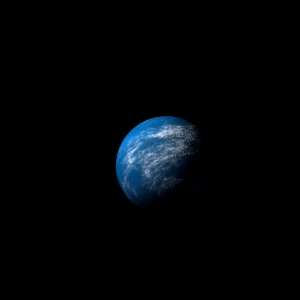|
|
Space Astro
|
Info for exoplanet "Keisoteus'da"
| Scientific (actual) data |
|---|
| Name | Kepler-1365 c |
| Planet status | Confirmed |
| Radius | 0.071 |
| Orbital period | 4.77468 |
| Discovered | 2016 |
| Updated | 2021-02-05 |
| Tconj | 2454970 |
| Publication | Announced on a website |
| Detection type | Primary Transit |
| Alternate names | 2MASS J19284793+4202459 c, K02838.02, KIC 6607357 c, KOI-2838 c, KOI-2838.02, WISE J192847.92+420245.6 c |
| Star name | Kepler-1365 |
| Right ascension | 292.2° |
| Declination | 42.05° |
| Mag j | 12.251 |
| Mag h | 11.925 |
| Mag k | 11.857 |
| Star distance | 541 |
| Star metallicity | 0.03 |
| Star mass | 1 |
| Star radius | 1.05 |
| Star age | 6.03 |
| Star temperature | 5770 |
| Star alternate names | 2MASS J19284793+4202459, KIC 6607357, KOI-2838, WISE J192847.92+420245.6 |
| Wikipedia article | Kepler-1365 c |
Back
| |
| Fictional info (?) |
|---|
| Suggested name | Keisoteus'da |
| Planet type | Cold planet |
| The volume of water detected has been estimated to be equivalent to the volume of water in the Black Sea. |
| Atmosphere | Carbon monoxide | 56% |
| Hydrogen | 40% |
| Helium | 4.1% |
| 2H2O | 0.17% |
| Atmospheric pressure | 0.09 bar |
 |
| Moon | Liscar | Medium-sized potato shaped rocky moon |
| Lasaocha An | Very small round ice asteroid |
| Pucktis Leeury | Medium-sized round rocky planetoid |
| Pohipid-thealao | Huge almost round rocky planetoid |
| Google search for Keisoteus'da |
|
Website by Joachim Michaelis
|
|
|
|